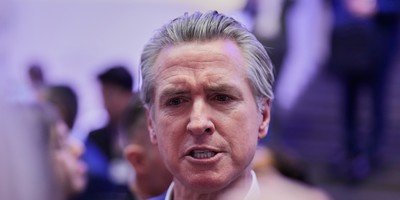The election of Socialist Party candidate Francois Hollande to the presidency of France epitomizes the sorry state of contemporary democracy. By that, I don’t mean to imply that the French people should have voted for the incumbent, Nicolas Sarkozy. Neither would be capable of solving France’s intractable problems in a way acceptable to French voters, nor are the problems with democracy unique to France. To varying degrees they exist throughout Europe as well as here in the United States.
The first problem is: widespread economic illiteracy. Hollande campaigned on a platform of economic growth and expanded job creation, to be accomplished by raising taxes on the rich and increasing government spending. Well, good luck with that one. Even Lord Keynes himself advocated lowering taxes rather than raising them to stimulate economic activity. And the record of net job creation via government stimulus is one of dismal failure. Hollande’s program can’t work, and yet a majority of the French electorate voted for it. How sad.
The second problem is the utter cynicism of today’s politics. One wonders whether Hollande himself truly believes his own campaign rhetoric. One senses that he knows that his socialistic policies would drive France’s struggling economy into the ditch: According to the World Socialist Web Site (www.wsws.org)—who were cheerleaders for Hollande’s campaign promises of more tax & spending—Hollande’s team has told Reuters that he is going to change course and “carry out reactionary policies ... and intensify social cuts.”
The third problem is that people sometimes believe in fairy tales. Who knows what Hollande believes or understands about economics, but let’s give him credit for being politically astute. He understood that the key to electoral success is to tell voters what they want to hear. In France’s case (as in the recent elections in Greece and northern Germany) most people are opposed to “austerity.” Hollande sized up the public mood and won the presidency on the theme of, “You don’t want austerity, and under me, you won’t have it.” That’s bunk. There is going to be “austerity” (in France and elsewhere) whether the people want it or not.
Recommended
The fourth problem is that the public is in denial about reality. What is commonly called “austerity” is more accurately termed “sobriety.” For years, people in the democracies have been voting themselves economic freebies and subsidies—getting high on the drug of government wealth transfers. They became addicted to politicians who promised and voted more and more monetary fixes for their present and future desires. That means that politicians who indulge voters’ fantasies and play along with the delusion that the government is a bottomless cornucopia of goodies will have the electoral advantage over those who are courageous enough to tell people the truth about the hard choices that must be made.
What the voters didn’t reckon on—and what they are still in denial about—is that just as a feel-good drug addiction eventually brings one to the point where additional fixes could prove fatal, so the democratic Santa Claus state has neared the breaking point. Either the binge stops—that is, government spending and promises of future benefits are trimmed back—or the system breaks down. The ineluctable fact is that there simply isn’t enough real wealth in existence to make good on all these government promises. The penalty for not facing up to this painful economic truth will be either a market rejection of sovereign debt or a central bank “quantitative easing to infinity” that debases the currency, either of which will convulse markets horribly.
The biggest problem underscored by the French election is the degenerate state of modern democracy (with apologies to Aristotle and our Founding Fathers, who would consider “degenerate democracy” a redundancy). Democracy today is both childish and cannibalistic. It is childish in the sense that masses of people believe that if they want something, all they need to do is vote for it and they will get it—as if economic reality can be transformed by a mere act of will, and government can conjure desired benefits out of thin air. It is cannibalistic in that so many have fallen into a state of moral depravity and pathetic impotence in which they believe that the only way they can have the comfortable life is for government to take other people’s wealth and give it to them.
Many people believe that government is the answer to their problems. They are about to learn the painful lesson that government isn’t the answer. I doubt many of them will recognize that their pain will be self-inflicted. As H.L. Mencken once put it, “Democracy is the theory that the common people know what they want and deserve to get it good and hard.” The French, the Greeks, and a lot of other people living in democracies are about to get a jolt of economic reality and sobriety “good and hard.”

























Join the conversation as a VIP Member